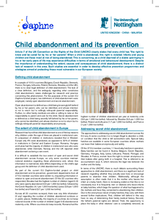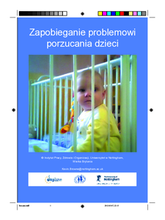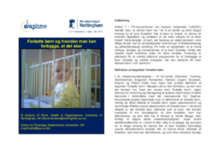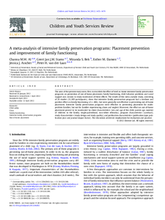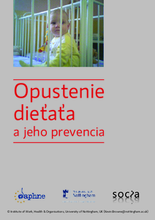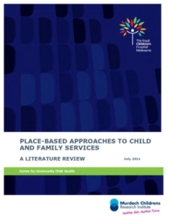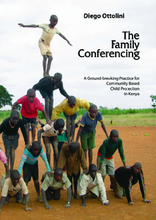Displaying 811 - 820 of 950
This document is an English language summary brochure of the Manual of Best Practice titled ‘Child Abandonment and its Prevention in Europe,’ specific to child abandonment in the UK.
This document is a Polish language summary brochure of the Manual of Best Practice titled ‘Child Abandonment and its Prevention in Europe,’ specific to child abandonment in Poland.
This document is a Danish language summary brochure of the Manual of Good Practice titled ‘Child Abandonment and its Prevention in Europe,’ specific to child abandonment in Denmark.
This report, produced by the Joint United Nations Programme on HIV/AIDS provides an update on the global AIDS epidemic as well as information on HIV prevention and treatment, HIV/AIDS as it relates to human rights and gender, HIV investments, HIV/AIDS estimates and data, and country progress indicators and data.
This study aimed to establish the effect of brief, in-home intensive family preservation programs on prevention of out-of-home placement, family functioning, child behavior problems and social support.
This document is a Slovakian language summary brochure of the Manual of Best Practice titled ‘Child Abandonment and its Prevention in Europe,’ specific to child abandonment in Slovakia.
This informational note for action, produced by World Day of Prayer and Action for Children, aims to support religious communities and partners in promoting “positive parenting” and non-violent disciplining of children.
This document analyses the review of 43 impact studies sought to methodically capture the known impacts of economic strengthening programs on the well-being of children (0-18 years) in crisis contexts in low-income countries.
This paper synthesizes the conceptual and empirical literature on place-based approaches to meeting the needs of young children and their families.
A retrospective exploratory study on 73 family group decision making conferences for children referred to institutional public services in Kenya to investigate the short, medium and long term conference outcomes on child’s safety, permanency and wellbeing.

